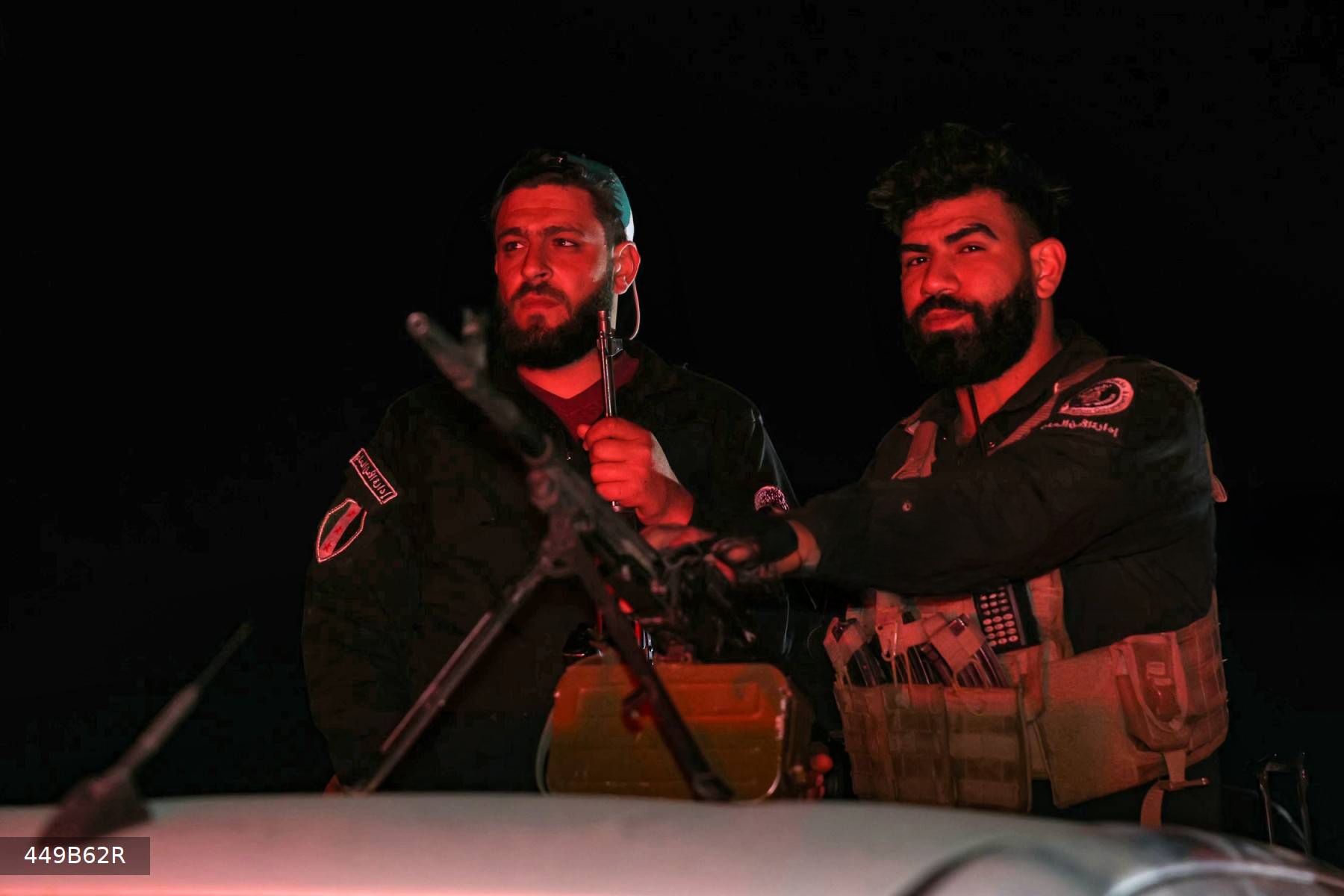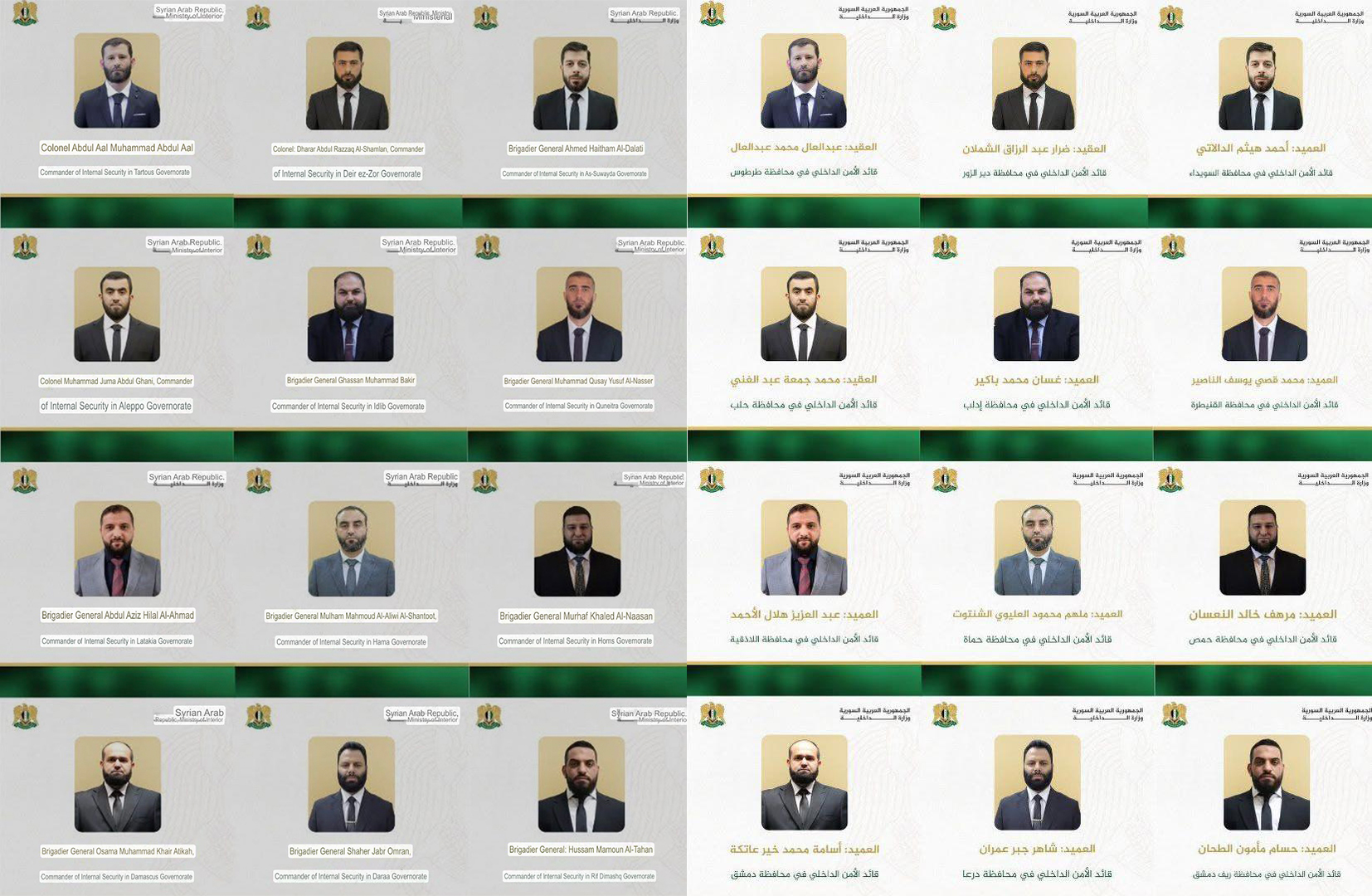Syria Appoints New Internal Security Chiefs for Each provinces Amid Sweeping Restructuring
The list notably omits the Kurdish-controlled regions in northern Syria (western Kurdistan), where no final agreement has yet been reached with Damascus regarding future administrative control.

By Ahora Qadi
ERBIL (Kurdistan24) – Syria’s Ministry of Interior on Sunday announced the appointment of new internal security commanders across 12 provinces, a day after unveiling a new organizational structure for the country’s internal security apparatus.
The appointments, made public through the ministry’s social media platforms, include 12 officers of varying ranks—chiefly colonels and brigadier generals—tasked with leading internal security forces in 12 out of Syria’s 14 provinces. The list notably omits the Kurdish-controlled regions in northern Syria (western Kurdistan), where no final agreement has yet been reached with Damascus regarding future administrative control.
Roots in Former Opposition
Among the newly appointed figures are individuals who formerly held security positions within Hayat Tahrir al-Sham (HTS), the dominant Islamist faction that spearheaded the December 8 offensive from Idlib, which resulted in the fall of the previous regime. However, the ministry did not disclose any criteria for the appointments, nor did it provide personal details or background information on the appointees.
In a separate statement released Sunday, the Interior Ministry also announced the appointment of six deputy ministers tasked with overseeing security, administrative, and civil portfolios—further evidence of the transitional government’s efforts to formalize its hold over security and governance structures.
A Unified Security Command
These developments follow Saturday’s announcement of a revamped internal structure that includes the merger of the country’s police and public security bodies under a unified entity now referred to as the “Internal Security Command.” New departments have also been established to handle border security, the protection of diplomatic missions, and the fight against drug and human trafficking—key components of the transitional government’s reform agenda.
The changes come in the wake of a broader effort initiated in Damascus shortly after the collapse of the previous government. In one of its earliest acts, the transitional authority dissolved the former army and all security agencies affiliated with the ousted regime.
Controversial Promotions and U.S. Concerns
The latest appointments follow earlier controversy sparked in December after the internal ministry promoted at least six foreign jihadists to military ranks—a move that drew widespread criticism both domestically and internationally.
During his meeting with Syrian President Ahmed al-Sharaa in Riyadh earlier this month, U.S. President Donald Trump—who recently announced the lifting of U.S. sanctions on Syria—urged Damascus to expel all foreign terrorist elements. Observer warn, however, that the transitional government may struggle to disengage from these fighters, given their central role in toppling the Assad regime and the reluctance of their home countries to repatriate them.
Security Vacuum and Future Challenges
Securing stability remains one of the most pressing challenges for Syria’s new leadership, especially in areas beyond its direct control. Sectarian-driven violence continues to simmer in some parts of the country, further complicating efforts to establish nationwide order.
The sweeping security appointments come at a pivotal moment in Syria’s transformation. Friday’s official termination of U.S. economic sanctions marks a significant geopolitical shift and opens the door to potential humanitarian and reconstruction efforts. The transitional government welcomed the move, calling it “a positive step toward easing the humanitarian and economic suffering” of the Syrian people.

